🌍 Frontier Markets News, November 21st 2025
A weekly review of key news from global growth markets

Africa
US boycott opens door for change at South Africa G20 Summit
Johannesburg will host the first G20 summit on the African continent this weekend, with talks expected to focus on debt sustainability, climate finance and global financial rules. Ahead of the summit, a panel of African experts convened in the city to draft proposals for a refinancing mechanism for increasingly burdensome sovereign debts and more autonomy for African nations in restructurings.
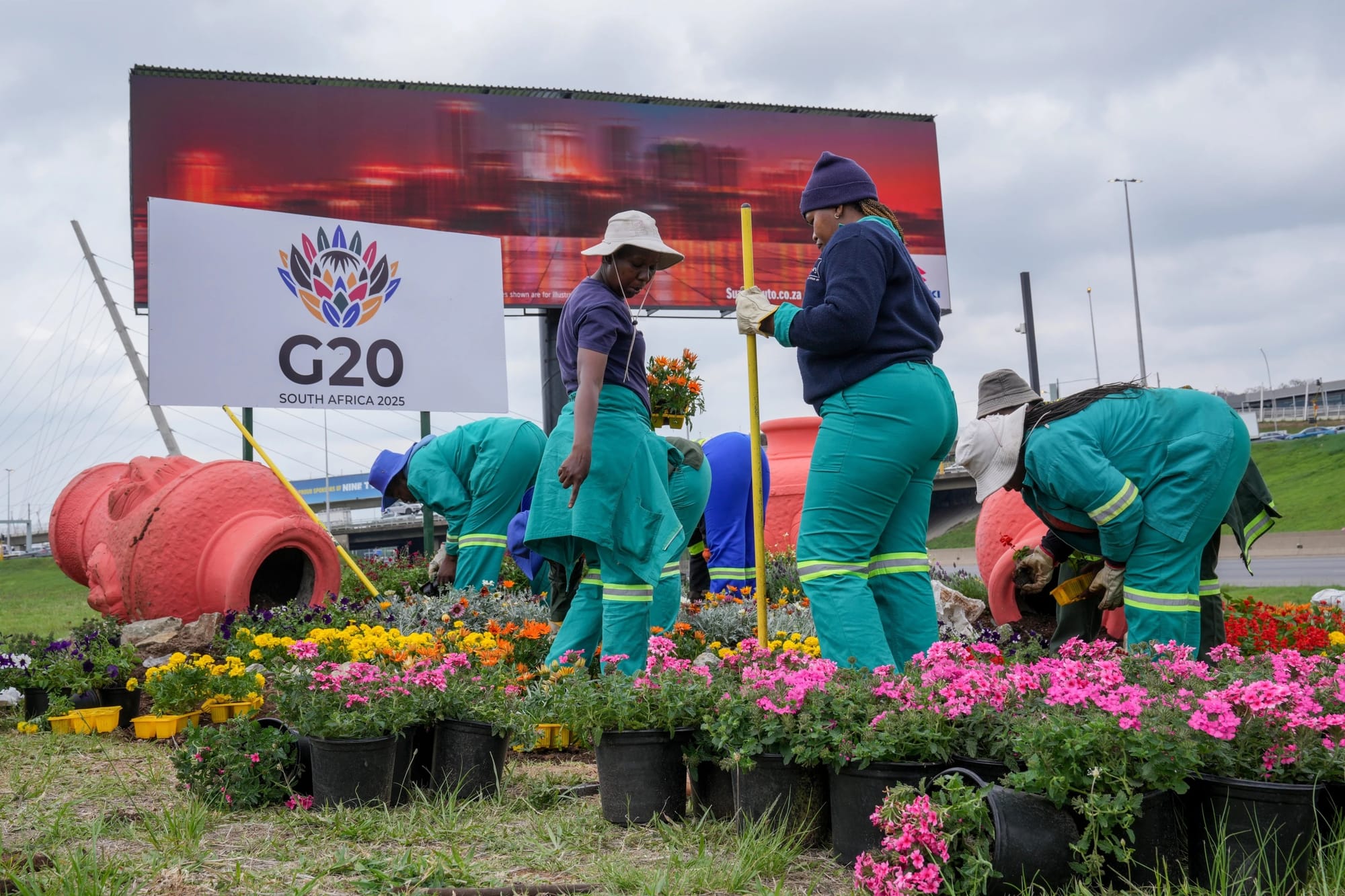
The panel also called for tighter oversight of credit agencies whose ratings they claim impose a “prejudice premium” on African borrowers.
- S&P raises South Africa’s rating for first time in two decades (Bloomberg)
World leaders began arriving in Johannesburg on Friday, but the US said it was boycotting the event as the Trump administration continues to claim white South Africans are being subjected to “genocide.” By Friday morning the US appeared to be vacillating over its boycott of the summit, but the empty American seat could provide Pretoria with a chance to cement its leadership on African affairs, as it also takes the reins of the Southern African Development Community following Madagascar’s resignation.
Russia tightens ties in Africa
Russia is deepening its alliances across the African continent through military and energy projects, including the sale of two of its Su-57 advanced fighter jets to Algeria, Military Watch reports. The CEO of Algeria’s state-run United Aircraft Corporation this week confirmed receipt of the stealth fighters, confirming the country as the first African nation with the latest in military aircraft.
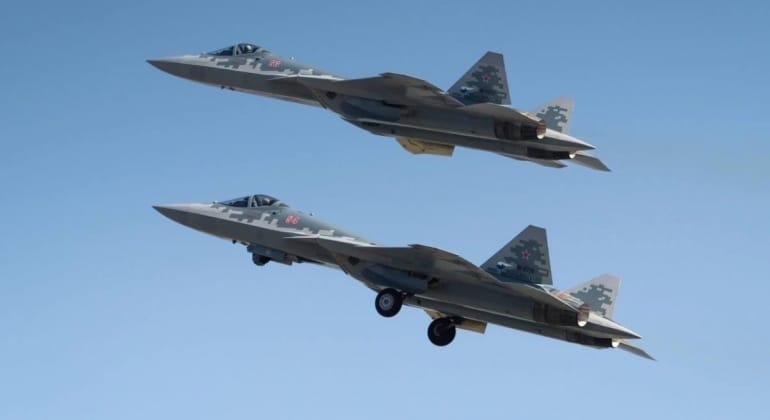
At the same time, Russian President Vladimir Putin hosted Togolese leader Faure Gnassingbé at the Kremlin, with the two leaders announcing they would open mutual embassies next year.
On Wednesday, via video link, Egypt’s President Abdel Fattah El Sisi and Putin celebrated the installation of the reactor vessel for Egypt’s El Dabaa nuclear power plant, built by Russian atomic energy firm Rosatom. Last month, Moscow donated $53 million worth of aging military equipment to Uganda.
Mobile money powers African telecoms growth
Digital financial services are helping drive sharp profit and revenue growth at South Africa’s telecom giant MTN, which this week reported strong third-quarter earnings, Ecofin Agency reports. The firm said it had surpassed 300 million subscribers in 16 countries. Revenues in Nigeria and Ghana were especially strong, rising 57.1% and 35.9% respectively.
Transaction volumes on its fintech platform, Mobile Money, soared by 38% to $342.3 billion.
Rival telecoms giant, the UK’s Airtel Africa, has seen its shares surge by more than 160% this year, also bolstered by its mobile payments platform, which processed $193 billion in transactions in the third quarter alone.
Meanwhile, Vodacom, parent company of Kenya’s telecom giant Safaricom, rejected calls by Kenyan regulators and government officials to spin off its M-Pesa payments platform. The Kenyan government owns a 35% stake in Safaricom, and would stand to benefit from the value creation it sees as likely from a breakup.
Asia
Pakistan market rides wave of retail investor enthusiasm
Pakistan’s benchmark KSE-100 stock index is up some 40% this year as retail investors pile into domestic stocks, Bloomberg reports. Trading activity on the Pakistan Stock Exchange is at its highest level since 2017, and investors have opened more than twice as many new trading accounts this year compared to 2024, according to the National Clearing Company of Pakistan.
- IMF sees 6.5% GDP upside if Pakistan fixes corruption and governance (Reuters)
The surge in retail trading comes amid a stagnating property market and falling deposit rates. That has made Pakistan’s stock market even more attractive, helping to make it one of the highest-returning in Asia this year.
Central Asian nations deepen cooperation
The president of Uzbekistan this week proposed creating a new bloc of Central Asian countries, Reuters reports.
Shavkat Mirziyoyev said the bloc, which he dubbed the “Community of Central Asia,” would include Uzbekistan, Kazakhstan, Kyrgyzstan, Tajikistan and Turkmenistan—the five countries whose leaders recently met US President Donald Trump at the White House—as well as Azerbaijan.
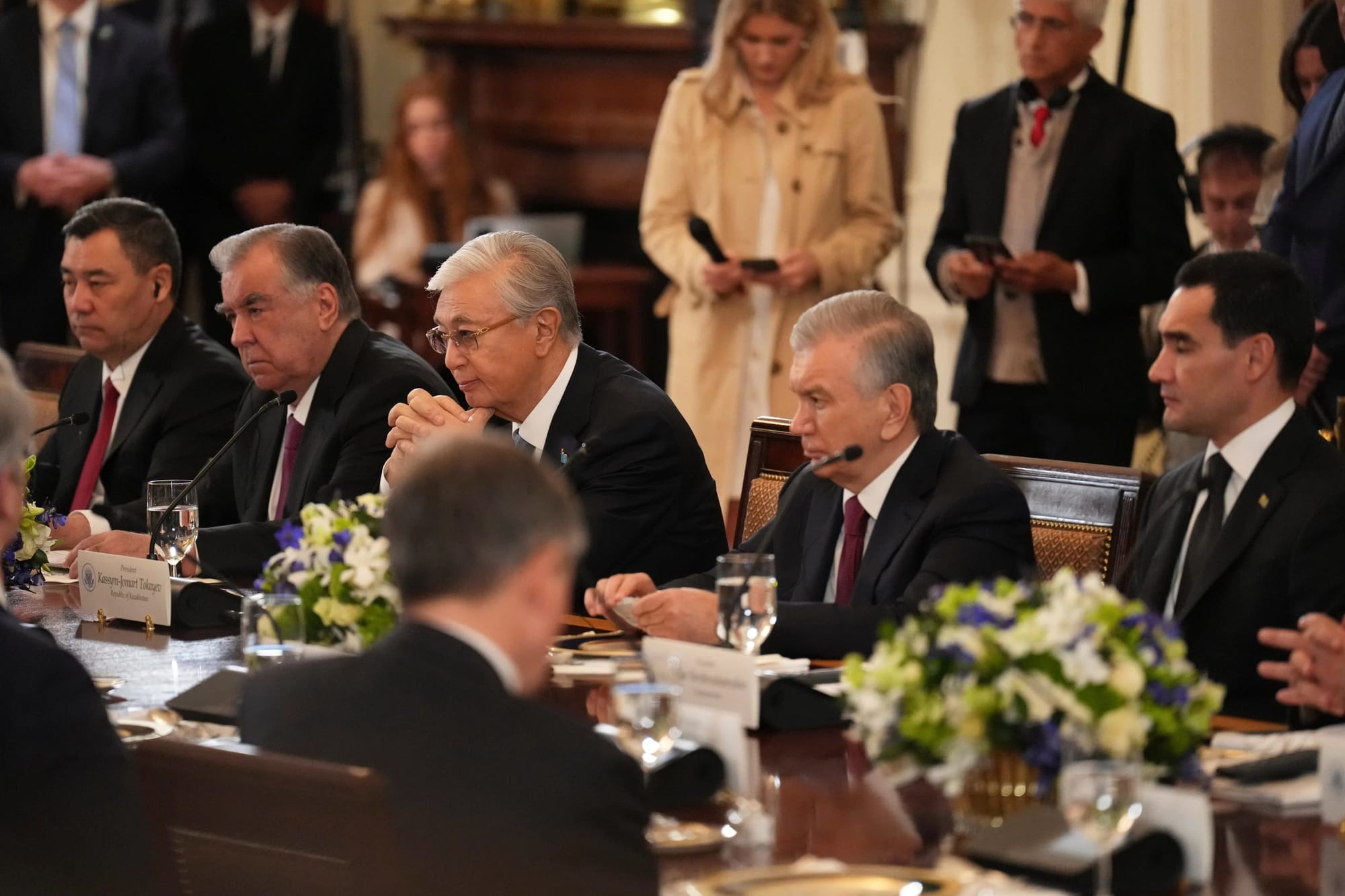
Both the US and China are courting countries in Central Asia, but the region is not well integrated. Intra-regional trade pales by comparison to trade with neighboring Russia and China, and the US has recently taken an interest in the region’s mineral riches.
Central Asian countries have also not always got on well with each other; Kyrgyzstan and Tajikistan fought a brief conflict in 2022 and only reached a rapprochement this year.
Middle East
Erratic rainfall prompts Iran to turn to cloud seeding technology
Heavy rainfall in parts of Iran this week provided some relief from Iran’s crippling recent drought, albeit at the cost of severe localized flooding, Reuters reports. The long dry spell has forced the government to try cloud seeding technology to stimulate rain in the Urmia watershed in Iran’s northwest, according to official state media.
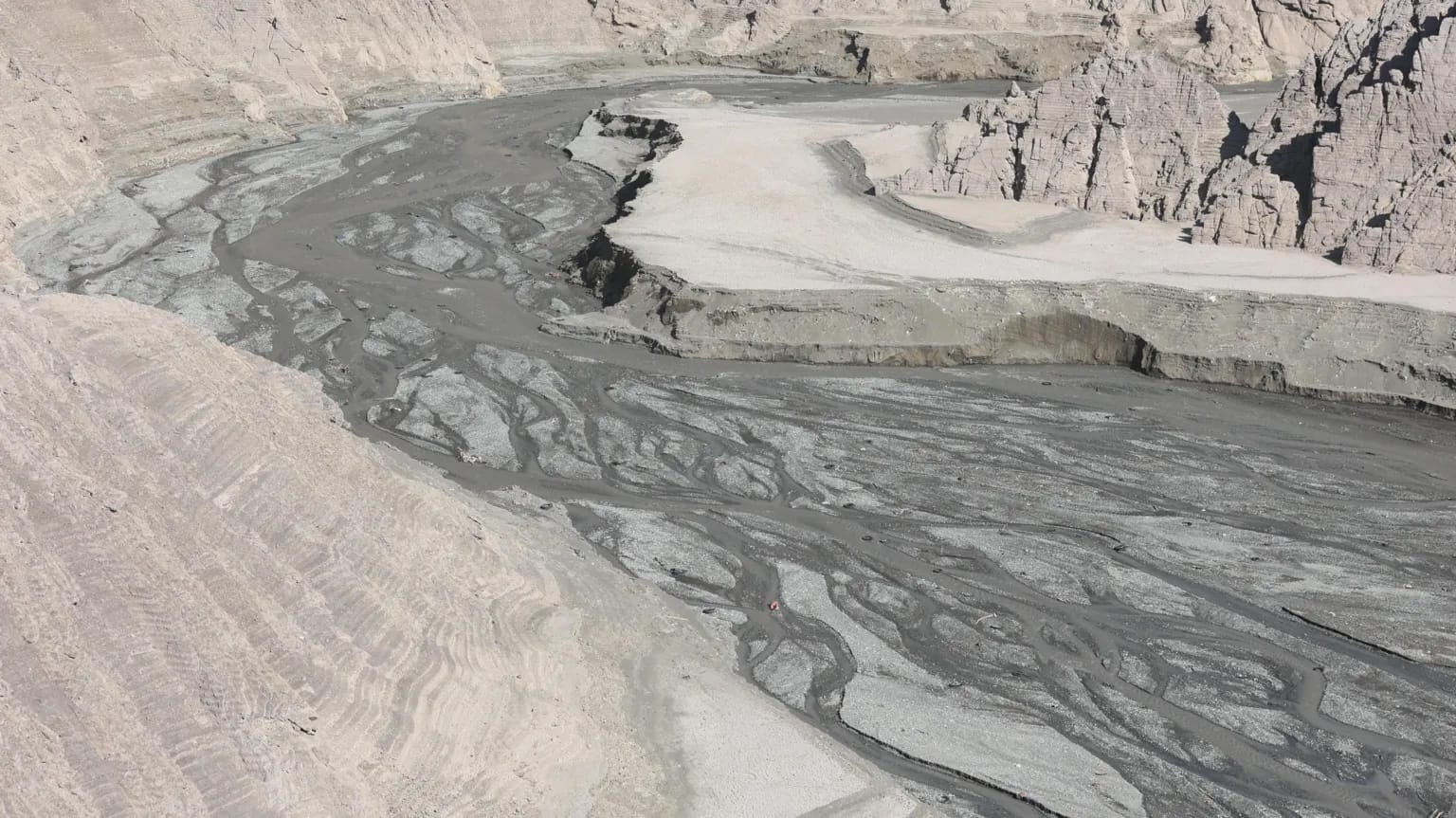
The country’s President Masoud Pezeshkian also revived talk about a possible relocation of the capital from Tehran, arguing that a move is now a “necessity” because the city can’t support further population growth. Iran had announced in January that it was considering relocating the capital to the country’s southern coast on the Gulf of Oman.
Jordan’s tourism growth hopes begin to materialize
Jordan this week reported strong tourism data for the month of October, claiming some 540,000 visitors, which boosted tourism revenues to over $600 million, local outlet Roya News reports. The country has been pushing to increase tourist arrivals, and in October announced that Ryanair and other European airlines would sharply increase direct flights.
Growth in domestic tourism is helping fuel the surge in revenues, local tourism media report. The government’s “Urdunna Jannah” initiative, which is focused on creating market-friendly regulations as well as adding new cultural landmarks to official tourism routes, is credited with helping to attract more visitors.
Yemen’s economy ‘worsening significantly’
Yemenis are experiencing a “marked increase in economic hardship,” according to the World Bank, which this week released a report from its ongoing mission in the country. Yemenis are suffering both in Houthi-controlled territory and in areas under control of the internationally recognized government (IRG).
- Sana’a shops shut for third day in protest against Houthis’ abuses (YemenOnline)
Although the IRG’s stabilization efforts have strengthened the local currency, high inflation, particularly in food, and a 30% decline in government revenues continue to weigh on the economy. In the Houthi-controlled areas the Bank found that US sanctions and Israeli airstrikes on key ports have restricted access to key imports and reduced humanitarian aid to the lowest level in over a decade.
The country faces little prospect of a respite, the Bank said, with the “continued blockade on oil exports, limited foreign exchange reserves, and declining donor support” contributing to continuing economic hardship.
GCC borrowers turn to Chinese banks for billions in syndicated loans
Borrowers in the Gulf Cooperation Council countries are looking to widen their range of lenders, with one of Saudi Arabia’s largest lenders, Riyad Bank, this week obtaining a $1.5 billion securitized loan in an offering dominated by Chinese banks, Bloomberg reports. The facility was issued in five- and seven-year tranches, with interest rates around 5%.

With the new facility Riyad Bank joins other GCC financial institutions that have recently turned to China for financing, including a $400 million five-year 2.6% fixed-rate yuan-denominated loan taken out by the Emirate of Sharjah, and a $4 billion syndicated dollar-denominated loan taken out by Abu Dhabi’s sovereign wealth fund ADQ.
Analysts suggest GCC borrowers are hedging currency and political risk as they increasingly turn to debt markets to finance their ambitious economic diversification plans.
Europe
Polish authorities charge Russia-backed Ukrainians over rail explosion
Polish Prime Minister Donald Tusk blamed an explosion that damaged a key rail link this week on Russia-linked Ukrainians, AP reports. The explosion targeted a railway used to deliver aid to Ukraine and is the latest in a spate of attacks that have been attributed to Russia-linked saboteurs.
Two Ukrainians were charged with sabotage of a terrorist nature by Polish authorities on Wednesday, and Poland’s foreign minister Radosław Sikorski described the attack as “an act of state terrorism.”

Pro-Russian groups committed other acts of sabotage and interference this past week including a cyberattack on political websites in Denmark. On Tuesday, Russia itself fired hundreds of drones and dozens of missiles at an apartment complex in western Ukraine, killing 26 people.
US military officials arrived in Kyiv on Thursday to discuss a new framework to end the war in Ukraine. The proposed plan would require significant concessions from Ukraine, the NY Times reports.
Hungary announces tax cuts for small businesses
Hungary’s Prime Minister Viktor Orbán this week handed up to $272 million in tax cuts to small businesses in Hungary. Financed by tax increases on banks, the relief package will benefit roughly 8,500 companies.
- Bulgaria hikes business taxes to fund public-sector pay rises (BalkanInsight)
Orbán’s move also postpones for six months a planned excise hike on fuel, and provides other measures to support small businesses, SME reports. The prime minister’s economic support measures come as Hungary suffers its third year of stagnation, according to Dutch financial group ING.
Latin America
Chile set for runoff after inconclusive first-round election
Chilean voters resoundingly backed conservative candidates in the first round of the presidential race, setting up José Antonio Kast as the clear favorite heading into December’s runoff, the FT reports. Public concern over crime and migration shaped the vote, giving Kast renewed momentum as he faces Communist candidate Jeannette Jara.
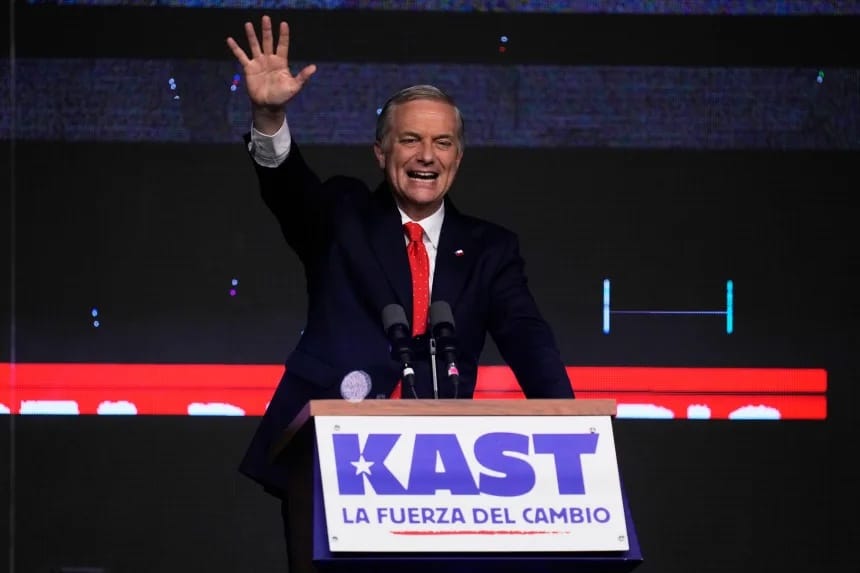
Kast’s 24% of the vote trailed Jara’s 26.8% but he is far better positioned to collect support from the three other conservative contenders who together won close to 45% of the vote.
Kast is promising tougher policing and sharp spending cuts, while Jara is trying to reassure voters on fiscal discipline and incomes. Strong turnout under Chile’s new compulsory voting rules suggests a decisive contest lies ahead in what is shaping up to be the country’s most polarized election in decades.
Ecuadorians reject key Noboa referendum
Ecuadoreans soundly rejected President Daniel Noboa’s attempt to reshape national policy through a four-question referendum, dealing a setback that raises political uncertainty in the Andean nation, the AP reports. Voters rejected a proposal to establish foreign military bases in the country as well as a process to rewrite the constitution, despite Noboa’s claims that both were essential to fighting crime.
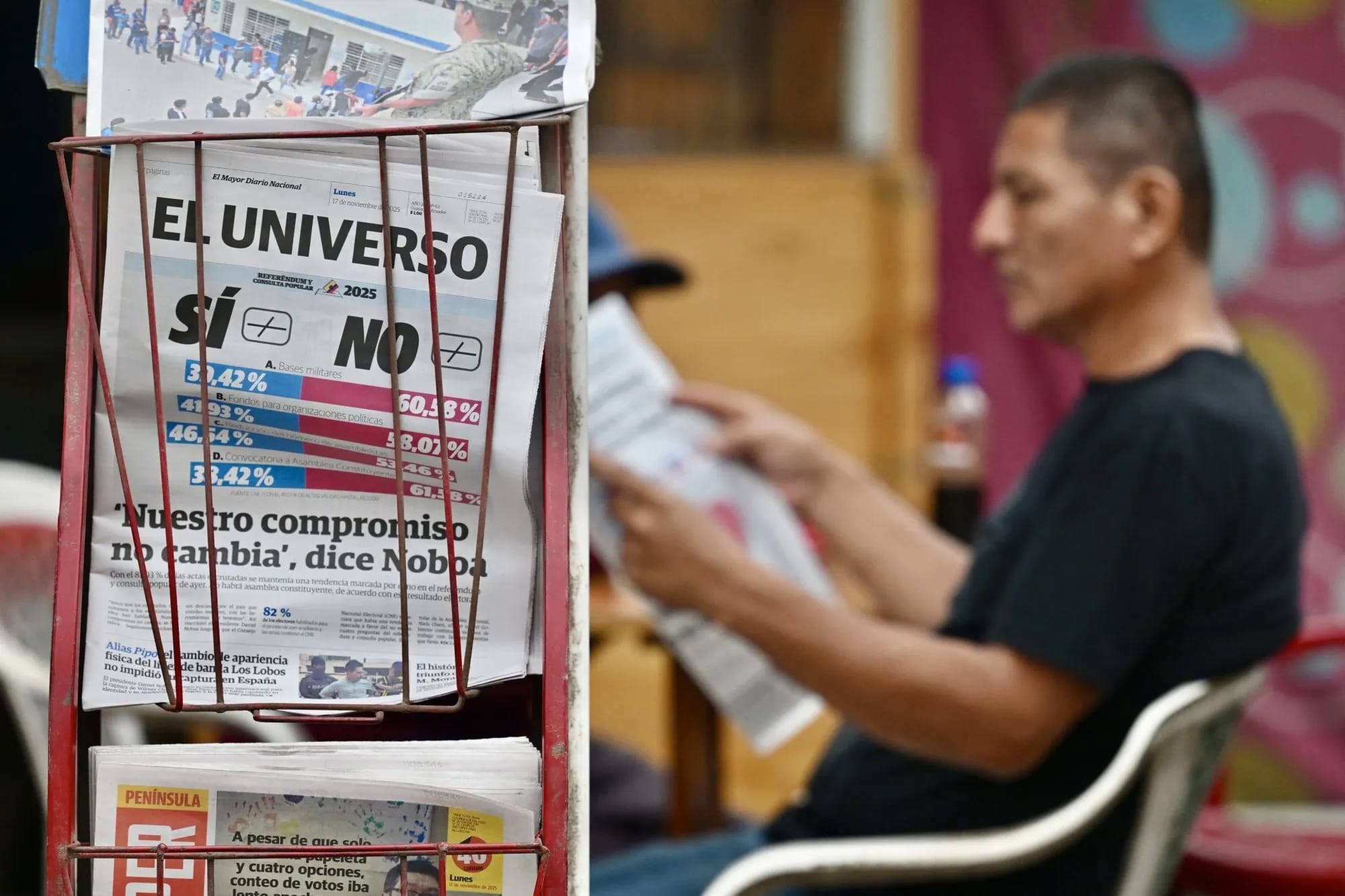
The strong rejection of the referendum proposals surprised pollsters and underscored public frustration with security conditions and living costs. However, Fitch warned that the defeat could slow the fiscal and institutional reforms Ecuador needs to stabilize its finances, even with an IMF program still in place.
- Noboa shuffles Cabinet after referendum (Bloomberg)
Voters also rejected cuts to the legislature and public funding for political parties, signaling discomfort with weakening checks on the presidency. Analysts say the outcome exposes limits to Noboa’s security-focused message and leaves him with less political leverage.
What We’re Reading
Ghana scraps tax on minerals exploration to boost investment (Reuters)
S&P raises Nigeria’s outlook to ‘positive’ as reforms take hold (Reuters)
DRC extends ban on trade in minerals from sites in war-hit east (Reuters)
Tanzania in turmoil after ‘Tiananmen Square moment’ (FT)
Rival Libya parliaments ‘agree on development program’ (Reuters)
Inside the Trump Organization’s slow-moving Vietnam ‘mega project’ (WSJ)
Myanmar military arrests hundreds in scam center raids (OCCRP)
Philippines gets $1bn in ‘reciprocal’ tariff relief (Nikkei)
Philippine ministers resign over flood-projects graft scandal (FT)
Thailand’s Q3 GDP growth slips to 4-year low as exports slow (Nikkei)
Indonesia to impose export tax on gold products next year (Nikkei)
Thai Supreme Court orders ex-PM to pay $541mn in taxes (Bangkok Post)
Malaysia converts palm oil plantations into AI data centers (Bloomberg)
Bangladesh’s ousted PM Hasina sentenced to death for student crackdown (NYT)
Trump defends Saudi Arabia’s MBS and promises deals (USA Today)
Kuwait SWF backs US firm Brookfield’s $100bn AI infrastructure fund (Reuters)
Kuwait approves new digital commerce law (Zawya)
Syrian FM visits China (Al Jazeera)
Kosovo ‘paying high price’ for delay in joining Single Euro Payment Area (BalkanInsight)
Kosovo heads for snap election after months of political deadlock (Politico)
Turkey will host COP31 climate conference next year (AP)
Hedge funds’ bets on Argentina pay off after US bailout (FT)
Argentina-US deal stirs concerns of Mercosur violations in Uruguay (Mercopress)
We are committed to providing FMN readers with a free weekly digest of politically unbiased, succinct and clear news and information from frontier and small emerging markets.
Please consider becoming a paid supporter to help cover some of our costs and support our continued development of sharp markets-focused coverage and new informational products. Paid subscribers will also gain exclusive access to our quarterly EM/FM report that aggregates EM insights from 25 major banks, international institutions and consultancies.






